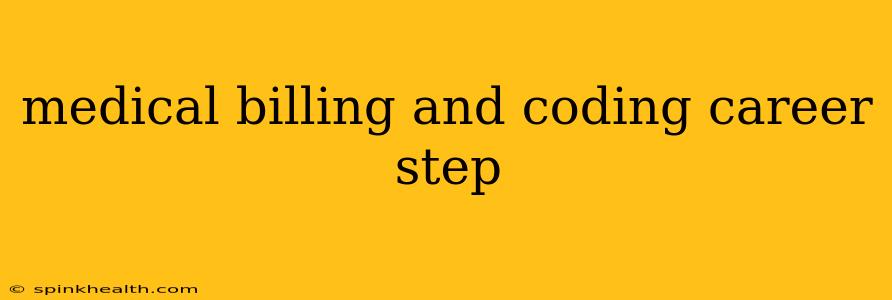Charting Your Course: A Step-by-Step Guide to a Medical Billing and Coding Career
The world of healthcare is constantly evolving, and behind every doctor's visit, every surgery, and every prescription lies a critical function: medical billing and coding. This intricate process ensures healthcare providers receive timely payments and patients receive accurate statements. If you're intrigued by the blend of medicine, technology, and finance, a career in medical billing and coding could be the perfect fit. But where do you begin? This guide lays out a step-by-step path to help you navigate this exciting field.
1. Understanding the Landscape: What is Medical Billing and Coding?
Imagine a complex puzzle where every piece is crucial. Medical billing and coding is precisely that. Medical coders translate medical diagnoses, procedures, and services into standardized alphanumeric codes (like those from the ICD-10 and CPT systems). Think of them as the healthcare translators, ensuring accurate documentation for insurance claims. Medical billers then take these codes and create and submit claims to insurance companies, follow up on payments, and manage patient accounts. Both roles are essential, and often individuals handle both aspects.
2. Educational Pathways: How to Get Started
This field offers various entry points. While a bachelor's degree isn't always mandatory, it can significantly enhance your career prospects. Here are your options:
- Associate Degree in Medical Billing and Coding: A focused, two-year program providing comprehensive training in coding and billing practices.
- Certificate Programs: Shorter, more targeted programs ideal if you already have some healthcare experience or want to upskill in a specific area.
- Online Courses: Flexible learning options offering a wide range of topics, from introductory courses to specialized certifications.
- On-the-Job Training: Some employers offer training programs, allowing you to learn while working, although this usually requires prior experience in a related healthcare field.
3. Mastering the Codes: ICD-10 and CPT
The core of medical billing and coding lies in understanding ICD-10 (International Classification of Diseases, 10th Revision) and CPT (Current Procedural Terminology) codes. ICD-10 codes describe diagnoses and reasons for medical encounters, while CPT codes detail the medical, surgical, and diagnostic services provided. Mastering these coding systems requires dedicated study and practice. Many educational programs emphasize hands-on training with these crucial codes.
4. Certification: Boosting Your Credibility
While not always mandatory, professional certifications significantly enhance your employability and demonstrate your competence. Several reputable organizations offer certifications, including the American Academy of Professional Coders (AAPC) and the American Health Information Management Association (AHIMA). These certifications require passing rigorous exams.
5. Gaining Experience: The Practical Application
Theory is only half the battle. Practical experience is vital. Here’s how you can gain valuable hands-on skills:
- Internships: Many colleges and vocational schools offer internships with healthcare providers, giving you real-world experience.
- Entry-Level Positions: Start with an entry-level role, like a coding specialist or billing assistant, to learn the ropes under supervision.
- Volunteer Work: Volunteer at a clinic or hospital to gain exposure to different healthcare settings and processes.
6. Networking and Career Growth
Networking is key to success in any field. Attend industry events, join professional organizations, and connect with professionals on LinkedIn. Continuous learning is also essential; staying updated on coding changes and industry trends is vital for long-term career growth.
7. What is the job outlook for medical billing and coding?
The Bureau of Labor Statistics projects strong growth for medical billing and coding specialists. The demand is driven by the aging population, expansion of healthcare services, and increased use of electronic health records.
8. What are the typical salary expectations for medical billing and coding specialists?
Salaries vary widely depending on experience, location, certifications, and the employer. However, generally, you can expect a competitive salary with potential for advancement.
9. What skills are necessary to become a medical biller and coder?
Strong analytical and problem-solving skills are crucial, along with attention to detail, accuracy, and proficiency in medical terminology. Computer skills, particularly with billing software, are also essential.
10. Is it hard to become a medical biller and coder?
The learning curve can be challenging, particularly mastering ICD-10 and CPT codes. However, with dedicated study and practice, it's a very achievable career path.
Embarking on a career in medical billing and coding is an exciting journey. By following these steps, you'll be well-equipped to navigate this vital field, contribute to the healthcare system, and build a rewarding career. Remember, dedication, continuous learning, and a passion for accuracy are your greatest assets on this path.

